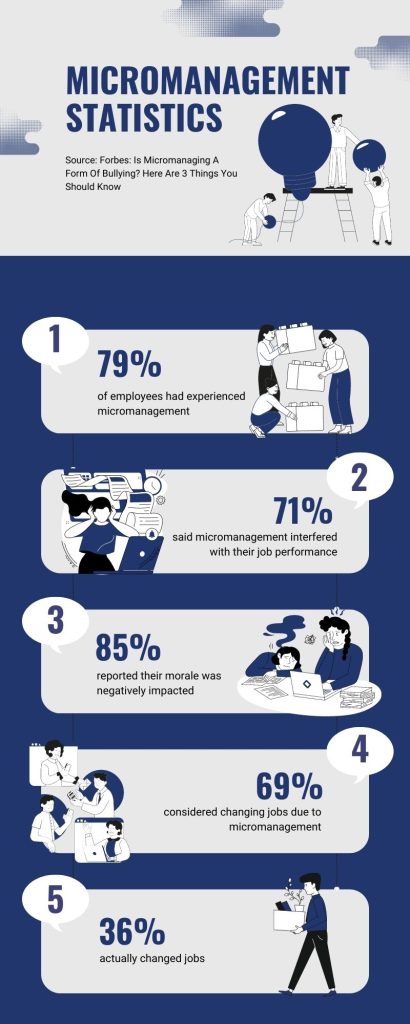Effective leadership is key to organizational success in today’s fast-paced corporate environment. However, there is one leadership style that has the potential to stifle innovation, hinder growth, and demotivate employees – micromanagement. Recognizing the signs of micromanagement when hiring especially during an executive search interview is of utmost importance to ensure hiring a candidate capable of thriving our business to success. This article explores the concept of micromanagement and its problems, provides questions to identify micromanagers in executive interviews.

Understanding Micromanagement
Micromanagement is a leadership approach characterized by excessive control, obsessive attention to detail, and a lack of trust in employees’ abilities. Micromanagers often interfere in the smallest tasks, offering unnecessary guidance and closely monitoring progress. While it may stem from good intentions, such as maintaining quality standards, it undermines creativity, autonomy, and professional growth.
The Problems Micromanagement Presents
Micromanagement poses several challenges within organizations, including:
1. Decreased Productivity: Micromanagers impede productivity by diverting employees’ focus from the bigger picture to minor details. This inhibits their ability to make decisions and complete tasks efficiently.
2. Reduced Employee Morale: Constant supervision and lack of autonomy erode employee motivation and job satisfaction. It can lead to a toxic work environment where innovation and collaboration suffer.
3. Hindered Growth and Development: Micromanaged teams often struggle to develop new skills and take initiative. As a result, personal and professional growth opportunities become limited, hindering both individual and organizational progress.
Spotting micromanagers when hiring. Executive search interviews
Spotting a micromanager in the workplace is not difficult. Micromanagers exhibit various behaviors that hinder productivity and inhibit the growth of their teams. These behaviors include:
Time Control: They disrespect others’ time while guarding their own, causing crises, mismanaging meetings, and manipulating calendars.
Dismissal of Knowledge: They ignore others’ ideas and experiences, controlling the work process.
Misuse of Authority: They use their power to dictate and control others instead of empowering them.
Monitoring and Reporting: They demand frequent and unnecessary updates, creating a culture of distrust.
Bottlenecking: They require approval before progress, slowing down processes.
Inability to Delegate: They struggle to delegate effectively, hovering or retracting tasks at the first sign of trouble.
But in an executive search interview, appearances can be deceiving. Of course, references always help to see through candidates, but the right questions do so at an early stage.
To identify potential micromanagers during executive search interviews, consider asking the following questions:
1.”What was your process for assigning work and ensuring everyone was set up for success?”
Look for someone who discusses aligning expectations upfront to avoid constant intervention and course correction during the project.
2.”How did you communicate with your team throughout the process and at specific points?”
Seek candidates who have established check-ins at milestones or specific times, rather than those who intervene randomly.
3.”How has your management style evolved over time? Are there things you do differently now?”
This question elicits more specific answers than asking about their management style alone, encouraging candidates to reflect on actual changes and new perspectives rather than using generic buzzwords.
4. “How do you handle mistakes or unexpected challenges within your team?”
Look for answers that demonstrate a balance between accountability and learning opportunities. Micromanagers tend to focus solely on mistakes and may exhibit a lack of understanding or patience when it comes to unforeseen obstacles.
Conclusions
Executive search interviews are the perfect opportunity to identify micromanagers in an executive search process. As a company is crucial to aim to build a productive and positive work environment by having the best possible talent available. Micromanagement can impede growth, hinder innovation, and diminish employee morale.
While interviews are very important, so are other parts of the executive search process: having access to an extensive talent pool, active search and reference checking will also ensure hiring the perfect candidate for your company. You can learn more about our executive search process here.










